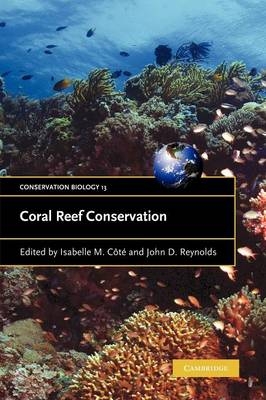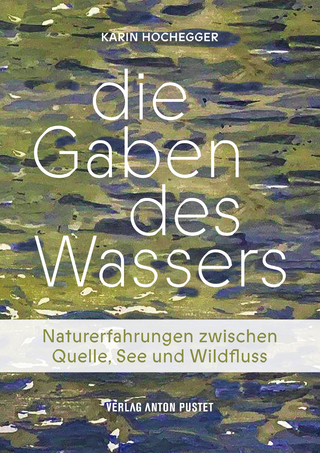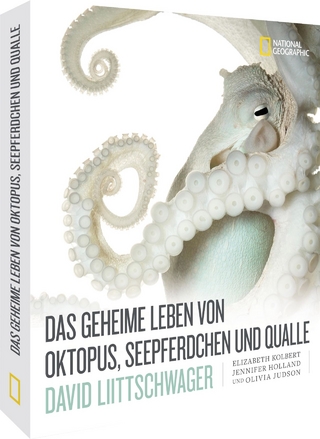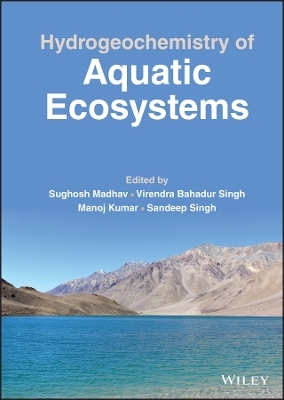
Coral Reef Conservation
Cambridge University Press (Verlag)
978-0-521-67145-3 (ISBN)
Coral reefs are the 'rain forests' of the ocean, containing the highest diversity of marine organisms and facing the greatest threats from humans. As shallow-water coastal habitats, they support a wide range of economically and culturally important activities, from fishing to tourism. Their accessibility makes reefs vulnerable to local threats that include over-fishing, pollution and physical damage. Reefs also face global problems, such as climate change, which may be responsible for recent widespread coral mortality and increased frequency of hurricane damage. This book, first published in 2006, summarises the state of knowledge about the status of reefs, the problems they face, and potential solutions. The topics considered range from concerns about extinction of coral reef species to economic and social issues affecting the well-being of people who depend on reefs. The result is a multi-disciplinary perspective on problems and solutions to the coral reef crisis.
Isabelle M. Côtè is a Professor at Simon Fraser University, Vancouver, Canada where she leads the Tropical Marine Ecology Group. John D. Reynolds is a Professor at Simon Fraser University, Vancouver, Canada, where he holds the Tom Buell Chair in Aquatic Conservation.
Foreward; Preface; Part I. Setting the Stage: 1. Status of coral reefs of the world: summary of threats and remedial action Clive Wilkinson; 2. Death and resurrection of Caribbean coral reefs: a paleoecological perspective William F. Precht and Richard B. Aronson; 3. A seascape-level perspective of coral reef ecosystems Peter J. Mumby and Alastair R. Harborne; 4. Cold-water coral reefs: status and conservation Emily Corcoran and Stefan Hain; Part II. Uses and Abuses: Ecological and Socioeconomic Issues: 5. Challenges and accomplishments towards sustainable reef fisheries Tim McClanahan; 6. Live food and non-food fisheries on coral reefs, and their potential management Amanda C. J. Vincent; 7. Tourism and coral reef-based conservation: can they coexist? Guy Jobbins; 8. Longer-term impacts of climate change on coral reefs Charles Sheppard; Part III. The Way Forward: Tools and Approaches: 9. New approaches to estimating recent ecological changes on coral reefs Isabelle M. Côté, Toby A. Gardner, Jennifer A. Gill, David J. Hutchinson and Andrew R. Watkinson; 10. Assessing management effectiveness of marine protected areas as a tool for improving coral reef management Sue Wells; 11. Environmental impact assessment for coral reefs: advocating direct protective approaches John R. Turner, Richard Boak, Rebecca Klaus, Deolall Daby and Emily Hardman; 12. Time for a third generation economics-based approach to coral management James Spurgeon; 13. Collaborative and community-based conservation of coral reefs, with reference to marine reserves in the Philippines Angel C. Alcala, Gary R. Russ and Portia Nillos; 14. Education as a tool for coral reef conservation: lessons from marine protected areas Lisa J. Browning, R. Andrew, O. Finlay and Lorna R. E. Fox; 15. Adaptive institutions for coral reef conservation Katrina Brown; 16. Coral reef restoration with case studies from Florida Walter C. Jaap, J. Harold Hudson, Richard E. Dodge, David Gilliam and Richard Shaul; 17. Redesigning coral reef conservation Callum M. Roberts, John D. Reynolds, Isabelle M. Côté and Julie P. Hawkins; 18. Coral reef coda: what can we hope for? Nancy Knowlton.
| Erscheint lt. Verlag | 17.8.2006 |
|---|---|
| Reihe/Serie | Conservation Biology |
| Zusatzinfo | 29 Tables, unspecified; 16 Plates, color; 70 Halftones, unspecified; 84 Line drawings, unspecified |
| Verlagsort | Cambridge |
| Sprache | englisch |
| Maße | 154 x 229 mm |
| Gewicht | 880 g |
| Themenwelt | Naturwissenschaften ► Biologie ► Limnologie / Meeresbiologie |
| Naturwissenschaften ► Biologie ► Ökologie / Naturschutz | |
| ISBN-10 | 0-521-67145-0 / 0521671450 |
| ISBN-13 | 978-0-521-67145-3 / 9780521671453 |
| Zustand | Neuware |
| Haben Sie eine Frage zum Produkt? |
aus dem Bereich


